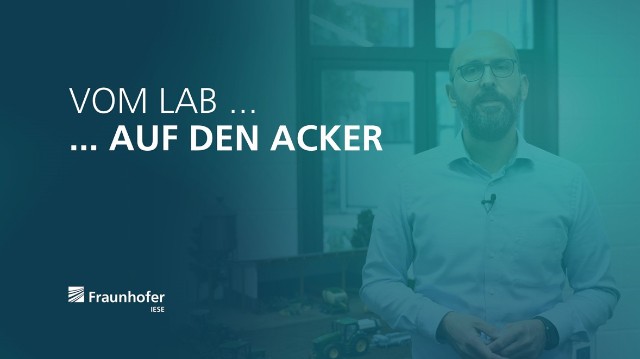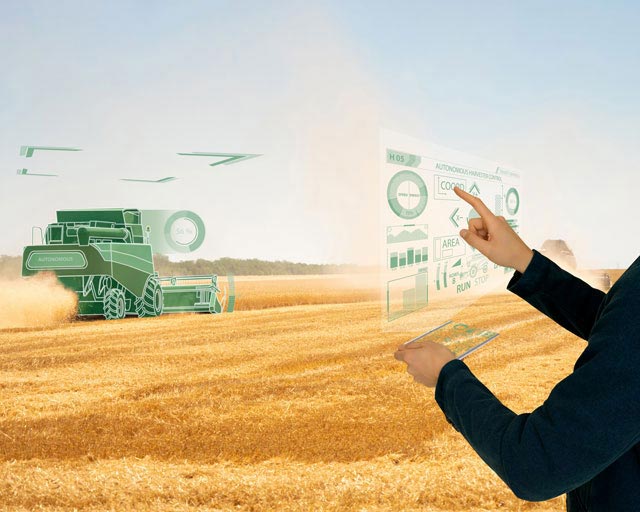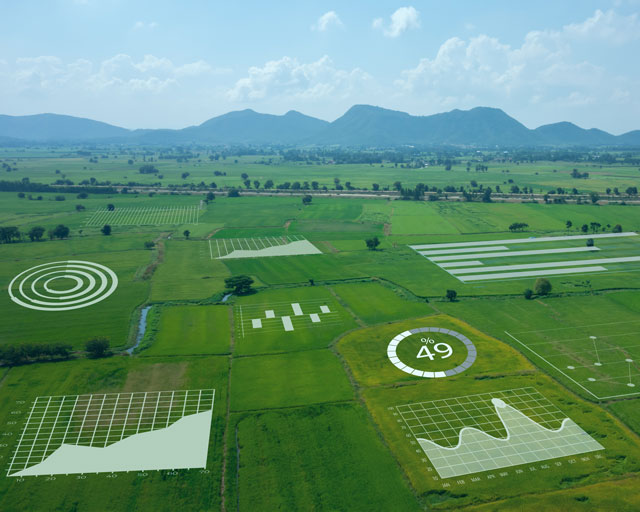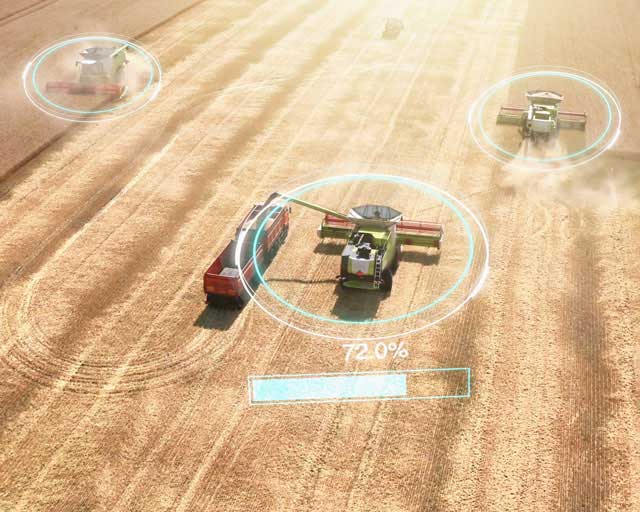Across system boundaries: Benefit from the successful establishment of your Digital Ecosystem in Digital Farming
Digitalization in agriculture offers many opportunities. Various processes and actors are interconnected along the entire value chain, meaning there is a continuous exchange of data. One characteristic of Agriculture 4.0 is the permanent collection of data. The collected data enables a higher knowledge yield if it is intelligently linked and evaluated. To do so, existing system boundaries between sensors, machines, and software must be overcome.
Data-driven services are already offered today via Farm Management Information Systems (FMIS) from various manufacturers. Future services will be based on Digital Ecosystems in which different players cooperate with each other. In this form, data, information, and services can be exchanged easily and without barriers. Within the Digital Ecosystem, diverse constellations arise between the participants. These relationships range from competitive to collaborative in order to jointly optimize applications for Digital Farming. For companies, this will result in a wide range of opportunities: the development of new business areas, the acquisition of new customers, and the initiation of innovative ideas in the area of Agriculture 4.0.
Security and data sovereignty: Get the decisive competitive edge
In addition to the system architecture, the trustworthiness, transparency, and data protection of the digital platform also play a key role in Digital Farming. For this reason, we focus on creating an infrastructure for efficient data exchange. Technical architectures are coordinated so that different agricultural platforms can be connected with each other.
With our solutions for data sovereignty, we ensure that you retain sovereignty and control over your data. We also ensure all aspects of data protection for the entire ecosystem and across system boundaries.
We fully support you in designing and implementing a Digital Ecosystem. In addition, we accompany you in the positioning and sustainable optimization of platforms in digital agriculture.
Read more about our solutions on Digital Ecosystems and data security




